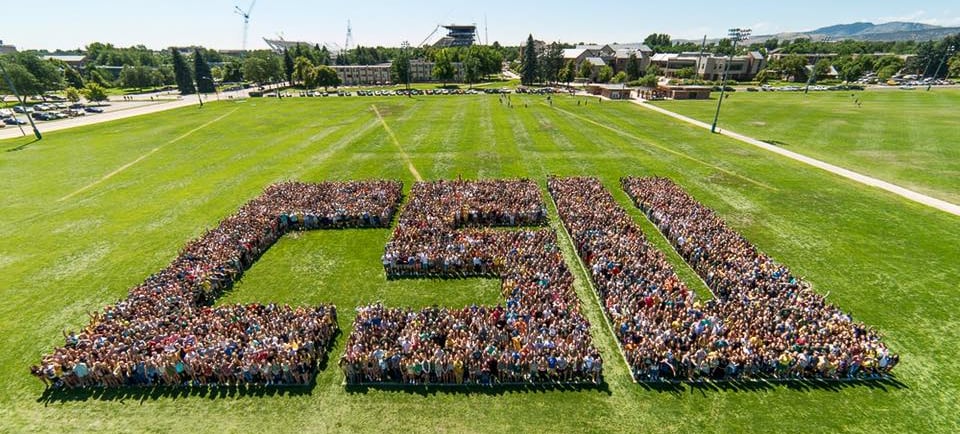where curiosity meets the charts

Degrees, Detours, and the Power of Leverage
This post explores how credentials—often dismissed in today’s hustle culture—can serve as powerful tools for reinvention, flexibility, and long-term leverage. Through personal reflection and practical insight, the myth that degrees are outdated is challenged, showing how education can expand your options, not limit them.
Solli Frank
10/1/20253 min read


Degrees, Detours, and the Power of Leverage
Your degree isn’t the destination. It’s the key to places you haven’t imagined yet.
In May, I completed my master’s in data science, decades after earning my bachelor’s in mechanical engineering. My path hasn’t been straight. But it’s been mine.
Lately, I’ve been in deep conversations with young adults - some on the cusp of college, others preparing to graduate - and one question keeps surfacing: Do credentials still matter?
We live in a moment where:
Entrepreneurship is glamorized
Success is monetized
Life paths are shaped by stereotypes
For young women, the message, whether whispered or shouted, is often that their highest contribution is motherhood. For young men, the pressure to “skip the degree and start earning” can be just as limiting, boxing them into a single version of success.
I’m not here to debate the value of any one role or path. I’m here to say this: credentials aren’t about impressing anyone. They’re about leverage. They’re about having more than one script to follow.
What Leverage Looks Like
Leverage means being able to walk into a meeting with federal partners and speak both the language of data and the language of community. It means being taken seriously before you’ve even spoken. It means having the freedom to pivot, into entrepreneurship, advocacy, leadership, or something you haven’t even named yet.
You don’t have to love every class. You don’t have to know exactly where your degree will lead. But without credentials, you’re often playing the game with fewer cards in your hand.
I remember sitting in a GIS mapping seminar, surrounded by peers half my age, thinking: I’m not here to catch up, but rather, I’m here to build something different. That shift in mindset changed everything.
Education Isn’t a Cage—It’s a Toolkit
To the young women and young men wondering if it’s worth it: Education doesn’t lock you in. It gives you the freedom to reimagine, to disrupt, to build something that doesn’t yet exist.
Credentials don’t guarantee success. But they do expand your options. They give you the language, the access, and the credibility to shape your own definition of success.
So ask yourself: If you could design your own definition of success, what would you need in your toolkit to get there?
Try This Exercise
List three roles you admire—whether they’re creative, technical, entrepreneurial, or community-based.
Then ask: What skills, credentials, or experiences would give you the freedom to pursue them?
Now, you might immediately ask: What do you mean by “three roles you admire”? Are we talking jobs we want? Celebrities we follow? Or maybe the most honest answer is: I have no idea.
That’s fair. We often get so caught up in the idea that a degree equals a job title. Get a medical degree to be a doctor. A law degree to be a lawyer. Or, like me, earn a mechanical engineering degree and become a full-time stay-at-home mom.
Wait…what?
To be honest, I didn’t go through engineering with the plan of staying home with our kids. But it was a major factor in allowing me to pivot into that role. My education and early career gave me a strong foundation so when daycare accessibility became a challenge and my desire to spend more time with our baby grew, I had options.
Because of that degree, I was able to take on flexible opportunities like CAD design and editing, substitute teaching, and eventually a completely new career path in GIS mapping and cartography.
And guess what? When I decided to return to full-time work, the degree and skillsets were still there. Still relevant. Still powerful.
Mapping Your Own Path
Back to those “three roles you admire.” For me, I decided I wanted to:
Be a business owner
Learn how to code
Fly drones
Then I outlined what skills and experiences I needed to make those roles part of my resume. That clarity helped me move forward with purpose.
Do we always need degrees or licenses to do what we really want to do? Maybe. Maybe not. But more often than not, most people don’t know what they really want to do - yet. And in a world where new roles and industries are created every day, a strong educational foundation and updated skillsets rarely hurt.
At the very least, when HR opens a new position and requires a college degree, or a path to earning one, it’s nice not to be starting from scratch alongside freshly minted high school graduates in speech or college algebra.
Your Resume Is More Than a Document
So take some time to assess your resume, not just professionally, but personally. What have you learned, built, led, or navigated that deserves to be named?
More importantly, take time to dream. Hitting those goals may be more realistic than you imagined.
Your path doesn’t have to be linear. But it should be yours. And the more tools you have, the more power you hold to shape it.
